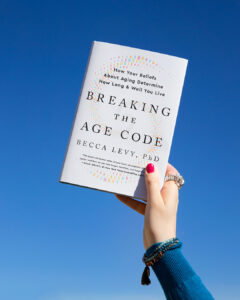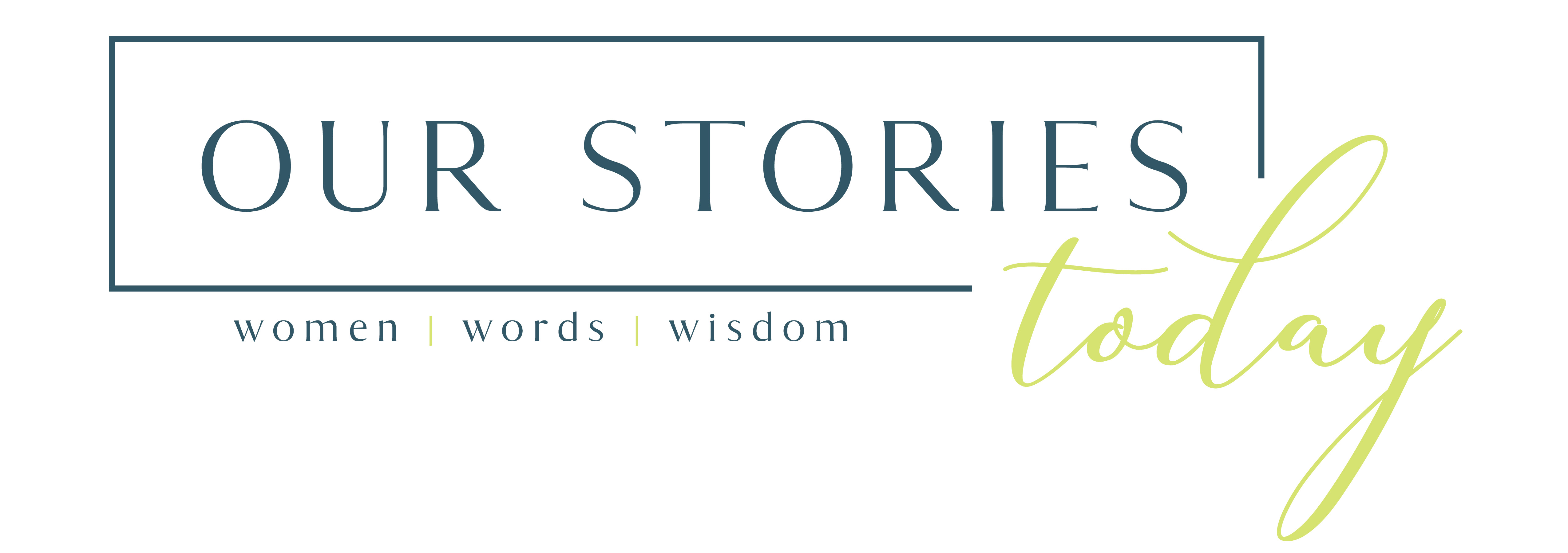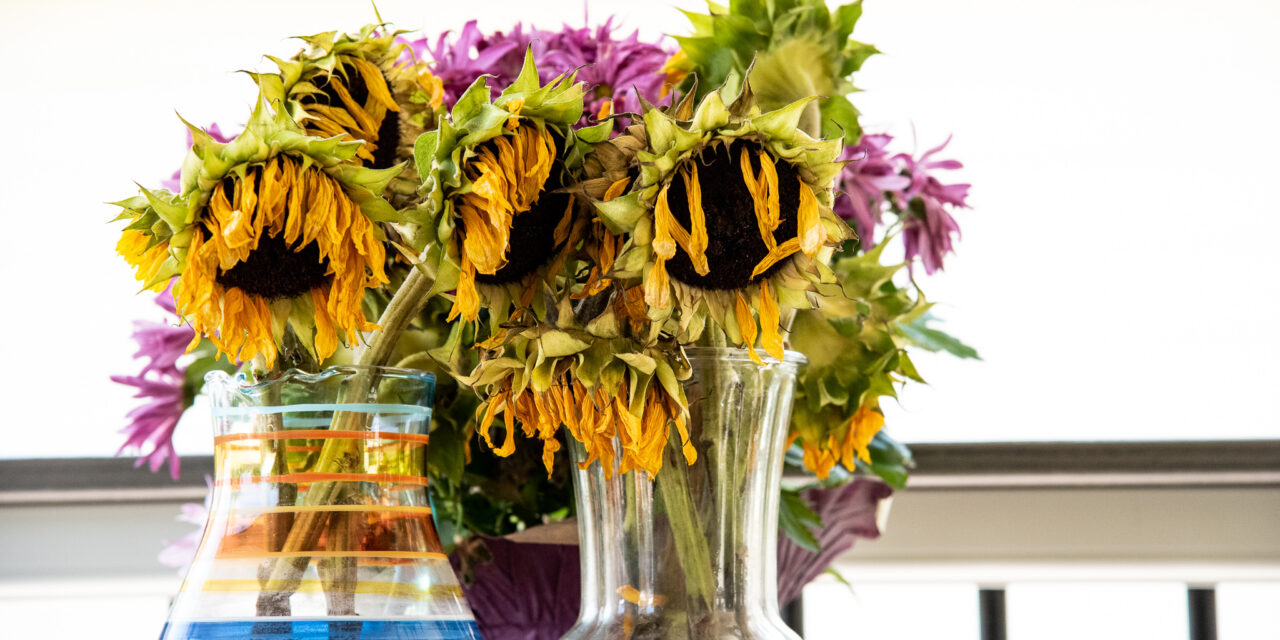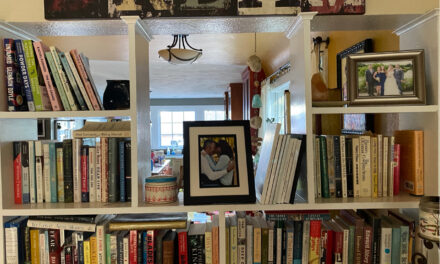We can change things by calling out ageist views and not subscribing to them ourselves. We need to be aware.
Ageism can make us our own worst enemies. When we believe everything is downhill from here, chances are this is what we will experience.
Positive viewpoints can become toxic but negativity surrounding older age is not realistic either. Life after 50 is not all up or down. Like other phases in our lives, our perspective can color our experience.
For example, have you ever considered how a positive belief system about aging might impact the quality and quantity of your own life? The important part here is that this must be a positive belief system, not fake positivity.
I recently completed Becca Levy‘s deep dive into how our belief system about age affects how we age and highly recommend “Breaking the Age Code“. One of the things I love about Levy’s book is she just doesn’t just point to the science behind her hypotheses, she shares actual tools to help change your belief system. If you are so inclined, of course.

Ageism is defined as the stereotyping and discrimination against older adults. Most of us think about this in regards to the workplace, but ageism goes far deeper than that. It can involve a lack of inclusion, access to quality medical care, false stereotypes and negative perspectives on age. For example, we chalk an ailment up to older age when age might actually have little to do with it.
When I worked in the outdoor retail industry as a merchandising consultant, I did an exercise Levy recommends. The exercise can involve magazines, social media, or the television, but the goal is to spend a few days logging the number of negative age stereotypes you encounter. These stereotypes could be blatant, such as the classic “I’ve fallen and I can’t get up,” or more subtle. A subtle example would be consistent marketing to a younger age group as if that age group is the only demographic that enjoys active pursuits or that only features young-looking models. Or, it can be subtle purely because of the negative image used to accompany an ad. Advertising that tells you that you need a certain face cream to fix your older skin or that all older people don’t understand technology.
The point of this exercise is to appreciate your awareness of the subliminal messaging that surrounds you. Such things influence our mindsets in ways we might not recognize.
We might complain about ageism as if it is something done to us as opposed to the belief system we harbor. There is no doubt ageist perspectives permeate American culture, but have you ever considered how your own views contribute to this?
When we joke about being over the hill, chalk up forgetting where our keys are to ‘senior’ moments, and believe our sore knees are purely due to age, what message do you think such statements give to the younger generations? What story are we telling ourself about the process of getting older? Might we be telling our children or younger contemporaries a negative story about age? One that they will embody?
Right around 60, or overnight it seemed, I became an older person. I held a somewhat negative belief system as this birthday approached. But something felt off. My experience didn’t feel negative, in fact, I felt stronger and more confident as a woman in her 60’s. But so much of the messaging around me, including from friends, was negative. Paying attention to outside influences improved my own perspective about getting older.When I realized this negativity was not the way I felt in my heart but was subliminal, I began Our Stories Today. This isn’t to say that there aren’t real challenges with advanced age, but I don’t believe it’s ‘all downhill from here.’
The good news, according to Levy, is you can change your belief system. Levy’s research estimates positive belief systems surrounding aging extend life expectancy by 7.5 years. What I found far more exciting was that this improves more than the quantity of our older years, it improves the quality of those years. At the end of “Breaking The Age Code” are thoughts about how to do just that.
That alone warrants the cultivation of awareness and a positive belief system.
We all benefit by working to understand how ageist belief systems not only affect our care of the aging, but how these negative beliefs affect how we, ourselves, will enjoy our own later decades. Our attitude can benefit our physical health outcomes as well.
We can change things by calling out ageist views and not subscribing to them ourselves.
There are people that hold deeply negative fears and beliefs about getting older and others who meet their increasing years with a sense of humor and inner gentleness. Who do you think has a happier existence?
When we write off older community members or talk about them like they are daft, we buy into an ageist belief system.
I will die one day. Until then, I plan to live. Loudly and independently for as long as possible. In celebration of my one precious life.
There is so much yet to see and to do.
And I intend to harness this adventure. Join me?





